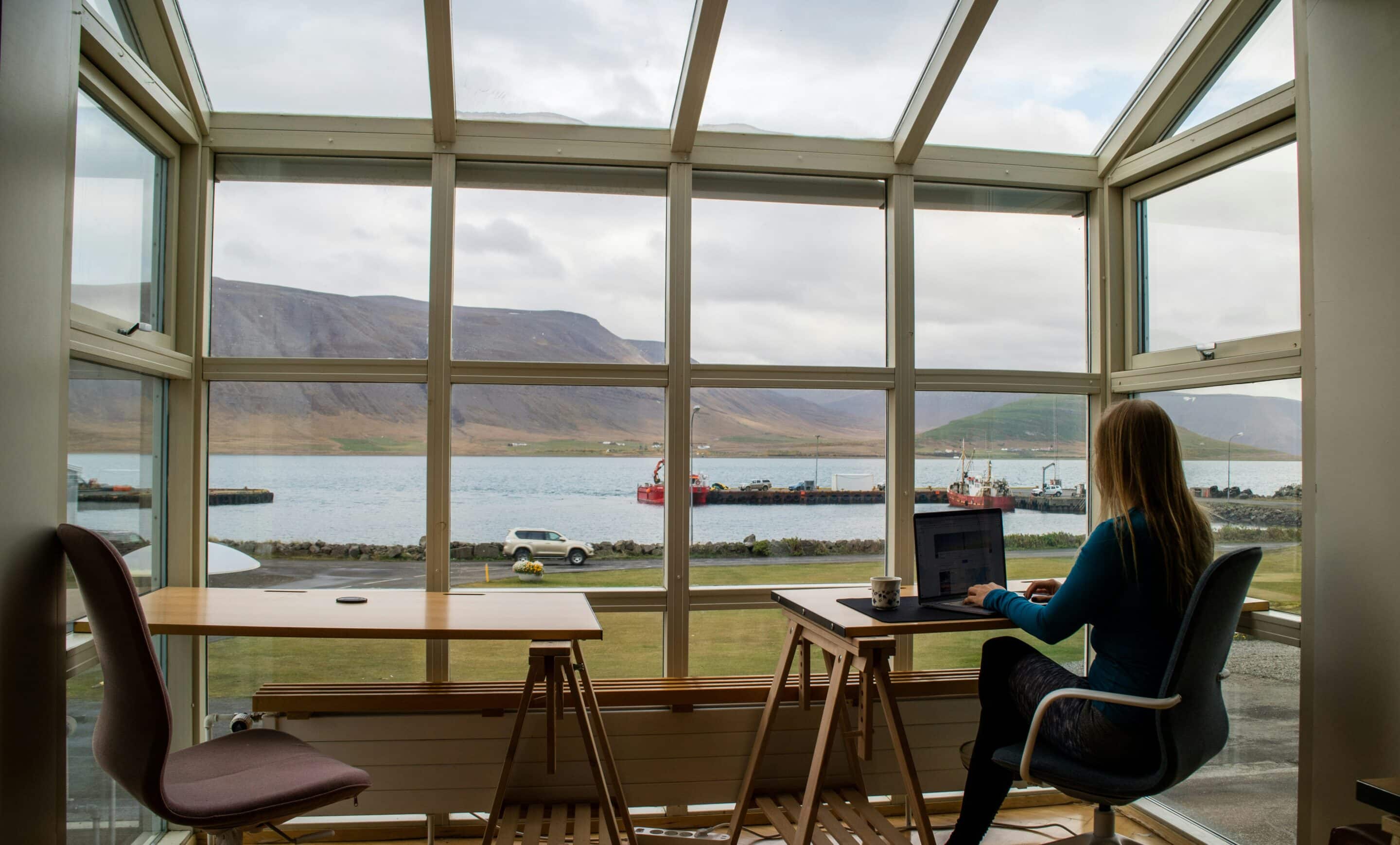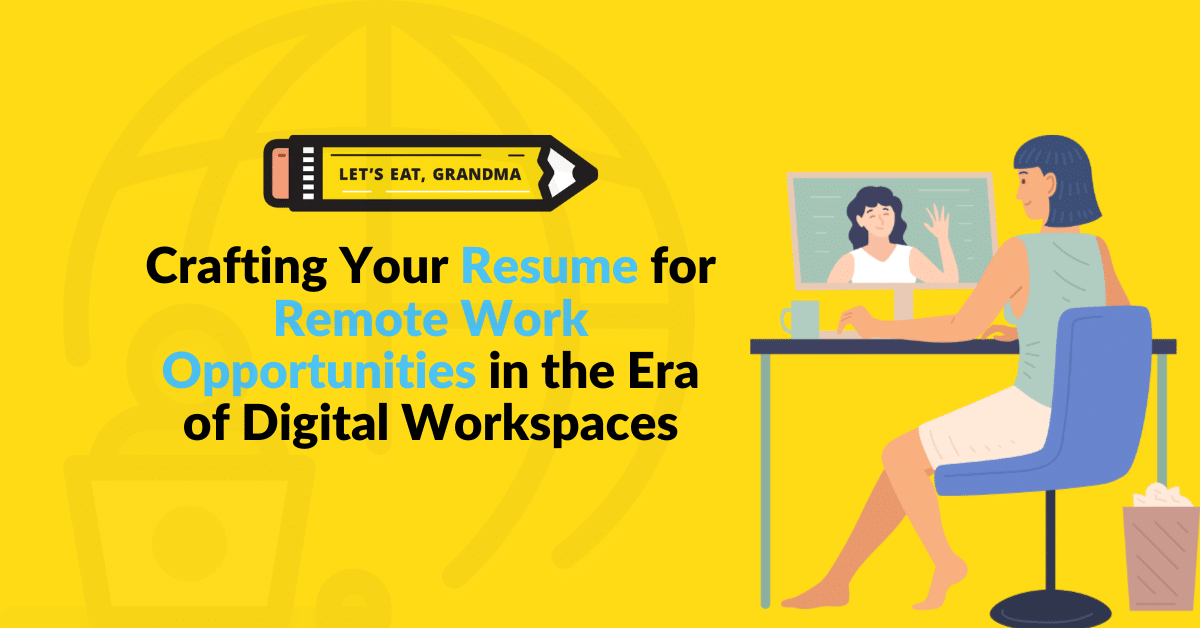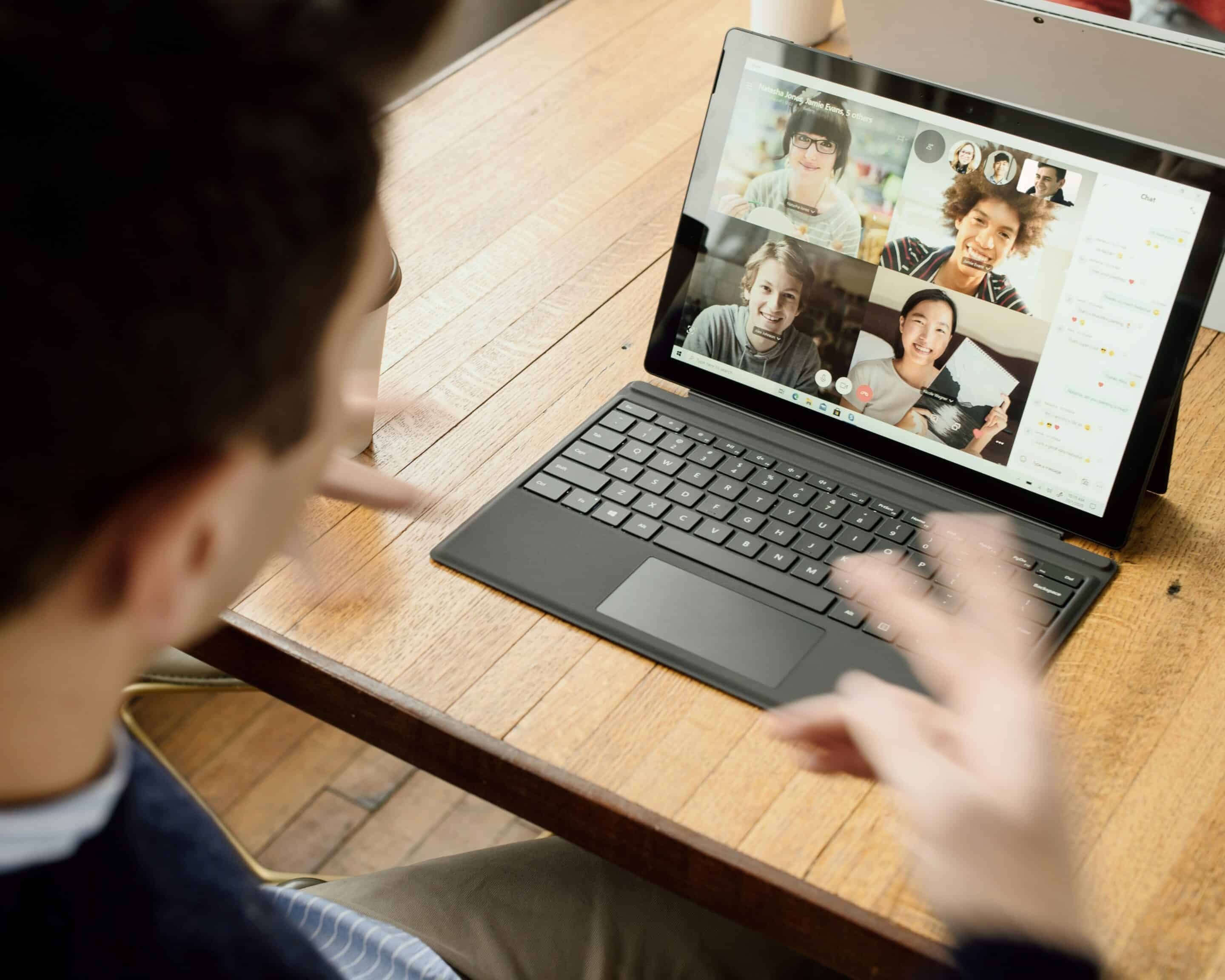The COVID-19 pandemic brought about a major shift in the way we work, the highlight being the rise of remote work. In the upcoming 2 years, it’s predicted that there will be 36.2 million Americans working remotely — a whopping 417% increase from before the pandemic! On top of that, 85% of managers believe that remote work teams will become the new norm.
So, what does this mean for you? It means that if you’re about to start job hunting, it’s highly likely that you’ll be applying to remote positions. And while this is great for most of us, it also brings about a new challenge — crafting a resume that’s suitable for remote work opportunities.
Yes, it’s not enough to use the same resume you’ve used for traditional office-based jobs. You’ll need to tailor a remote work resume.
This is because remote work is still considered a “non-traditional work setup,” and so employers need to be certain that you possess certain skills, such as self-motivation, time management, digital literacy, and more. Even better, they want to see that you’ve been able to succeed in remote work positions before, if possible.
Here, we’ll discuss some tips on how you can do just that.
Personal information and contact details
When it comes to your personal information, you can follow the standard resume protocol, but you should also emphasize your flexibility in terms of location and working hours. Mentioning that you’re open to working across different time zones or remotely can show that you’re well-suited for a remote job.
As for the contact details, email addresses and professional social media profiles like LinkedIn, can be more relevant for remote roles than personal contact numbers. Make sure to include the link to your LinkedIn profile so employers can easily learn more about you and your professional experiences.
Pro Tip: Don’t forget to include links to your personal portfolio or website in your personal information section, especially if you’re in a creative field where showcasing your work is important. This can provide employers with a better understanding of your skills and talents from the get-go.
Summary section
Next comes summarizing your qualifications and skills. This is where you can highlight abilities that are highly valuable for remote work, such as independence, self-discipline, proficiency in digital communication tools, adaptability to change, strong time management skills, and similar.
In this section, your goal should be to drive home the point that you’re a self-starter who can manage their own workload and communicate effectively with team members without being physically present.
Here’s an example of a strong opening statement that focuses on remote work capabilities:
Remote-focused graphic designer with 6 years of experience, excelling in designing captivating social media visuals for distributed teams. Highly organized team collaborator, consistently meeting deadlines and optimizing workflows for seamless virtual project execution. Exceptional communication abilities honed through successful collaboration with geographically diverse teams, ensuring effective project coordination and delivery.
Work experience and remote work skills
The meat of your remote work resume will be your work experience section. This is where you can demonstrate your past achievements in remote work settings while highlighting relevant skills in the process.
There are a few tips you should follow when writing this section:
Emphasize remote work experience
Be sure to mention any previous remote work experience, even if it was only for a short period. This will show employers that you have some level of familiarity with working from home. Plus, if there are any achievements you can highlight from those experiences, even better!
For instance, this could look like:
-
Successfully managed a remote team of 10 as a marketing manager, resulting in a 20% increase in website traffic and a 15% increase in social media engagement.
-
Thrived in a remote work setting as a customer service representative, consistently exceeding monthly sales targets by 25% through efficient communication with customers via email and chat.
Highlight key remote work skills
On top of presenting your remote work experience, you also want to send a clear message about your remote work skills. This could include digital communication proficiency and experience with remote work tools (think Slack, Zoom, Microsoft Teams, and the like), or soft skills, such as time management, self-motivation, and adaptability to change.
Here are 2 examples of how you can highlight these skills within your work experience section:
-
Utilized Zoom to meet with potential clients worldwide and successfully converted 80% of leads into sales.
-
Leveraged Slack channels to effectively communicate with team members and complete projects on time, resulting in a 100% completion rate.
Detail significant projects completed remotely
Finally, always remember that employers want to see results. If you have any noteworthy achievements in previous remote work settings, make sure to mention them in detail — potentially in a separate section.
Highlight the nature of the project, your role, and the outcomes, with a focus on how you collaborated remotely and managed tasks effectively.
This could look like:
-
Spearheaded the transition to a new project management tool (ClickUp) while working remotely, resulting in a 50% increase in team productivity and improved communication within the team.
-
Managed a team of remote freelancers for a marketing campaign, resulting in a 20% increase in online sales and positive client feedback.
-
Led virtual training sessions for new employees on company processes and procedures, receiving 90% satisfaction ratings from trainees.
These all not only demonstrate your technical and soft skills but also show that you can effectively work remotely and produce successful outcomes.
Education
You may think that the online course you took a couple of months ago isn’t relevant to your remote work skills, but think again! Even if it’s not directly related, every course you complete online says something about your ability to adapt and thrive in a digital environment.
After all, you’re able to leverage online learning and stay motivated to complete a course without the accountability of in-person classes. That probably means you’re disciplined, self-motivated, and able to work independently, doesn’t it?
On another note, if you took any directly relevant certifications or courses to remote work (like digital literacy, online collaboration tools, virtual team management, time management for remote workers, or similar), those should definitely be included in your resume. They’ll make you stand out as a candidate who’s serious about excelling in a virtual workspace.
Skills section
Last but not least, while you’ve touched on your skills on multiple occasions throughout your resume, a dedicated section is important for highlighting the key competencies you bring to remote work.
However, before you start adding to your already-existing list, make sure to remove any outdated tools or competencies first. After that, start adding:
-
Crucial technical skills for remote work, such as familiarity with cloud services, project management tools, and cybersecurity awareness.
-
Any advanced technical skills you possess in areas such as remote server management or software development tools (these can be a huge asset for companies looking to hire remote workers with specialized expertise).
-
A subsection for proficiency in remote work tools, including video conferencing software, collaborative platforms, and task management tools.
This is just to give you direction, but don’t be afraid to get specific and list the exact tools, programs, or systems you’re proficient in. Anyone can write “familiar with remote work tools,” but listing the specific ones you’ve used truly sets you apart from other candidates.

Photo by Kristin Wilson on Unsplash
Additional tips
Now that you have a solid foundation for your remote work resume, here are some additional tips to keep in mind:
- Use a clean, modern format that translates well digitally (forget about fancy fonts, graphics, and images — go for ATS-friendly instead).
- Keep the language clear and concise, focusing on how your skills and experiences make you an ideal candidate for remote work (avoid fluff and irrelevant information).
- Make sure your cover letter and LinkedIn profile reinforce your remote work experience and include soft skills important for remote work (self-motivation, communication, independence, and adaptability). You don’t want your remote work resume to be saying one thing and your cover letter or LinkedIn profile to be saying another.
In conclusion
When you’re applying for remote work positions, you’re not only going to be evaluated on how well you fit the job requirements but also on your ability to work remotely. You can tick all the boxes for the required technical skills, but if you can’t demonstrate your proficiency in remote work, you may not be considered.
That’s why it’s important to take this extra step and tailor your resume to showcase your remote work skills and experience, making you a top contender for any remote job. By following the steps and tips outlined in this guide, you’ll be able to put your best remote work foot forward and land your dream job.
And remember: if you ever need a second opinion on your resume, we’re offering you a free resume critique. That way, you can feel confident when clicking submit and know that your resume truly reflects your skills and experience. Sign up now!
Ready for more job search help?
Sign up for a free Senior Writer Resume Critique to see what’s holding you back from landing interviews. One of our top professional resume writers will give you personalized feedback on the top 3 items you can improve based on our expert practices!






